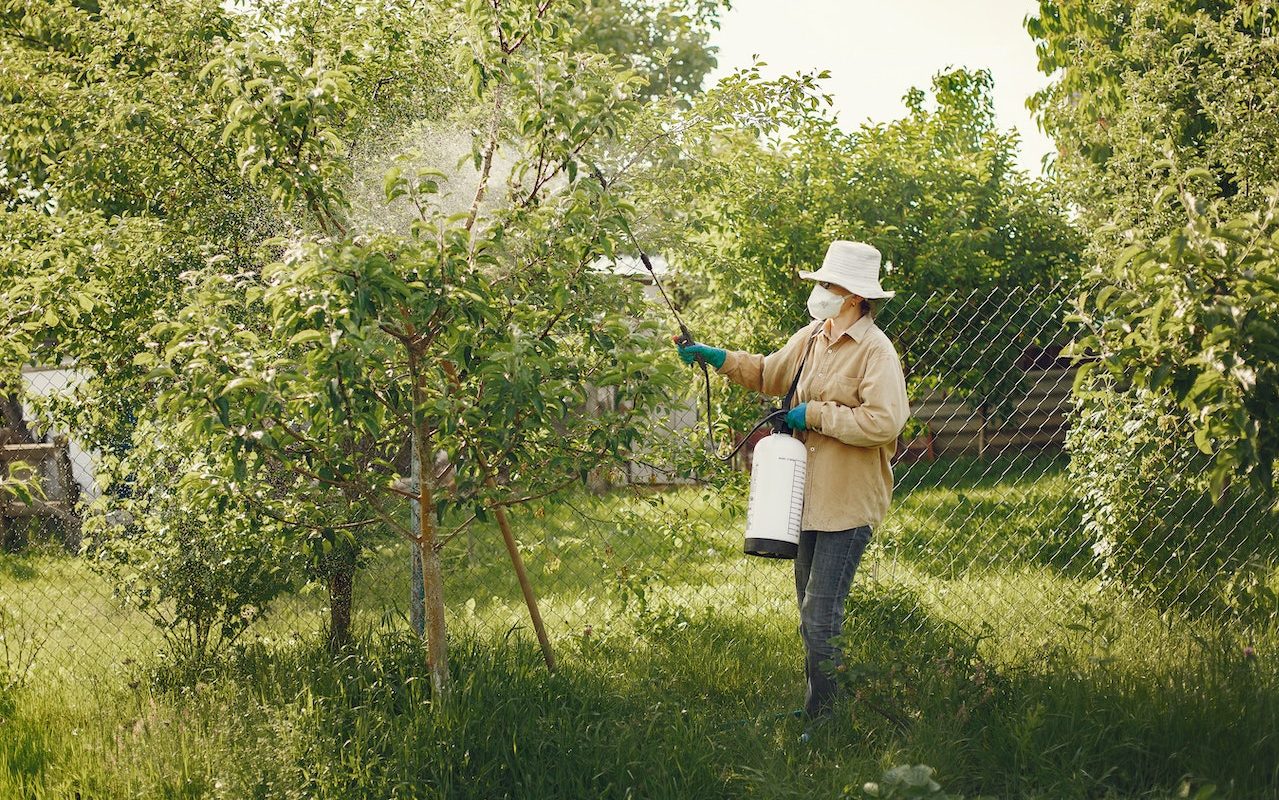Garden sprayers allow gardeners to treat their plants in a variety of ways, from providing nutrients to removing pests. If you’re looking for an easy and efficient way to maintain your garden, investing in a garden sprayer is the perfect option. Garden sprayer basics are important for any gardener to understand before using any type of sprayer.
The most common type of garden sprayer is the pump-up style, which uses air pressure generated by pumping a handle to deliver liquid or powder products onto plants.
Hose end sprayers are also popular because they attach directly to the end of a hose and apply treatments as water flows through them. Both types are relatively easy to use, but understanding how they work can help ensure optimal performance and long-term effectiveness.
Types of Garden Sprayers
Garden sprayers are essential tools for any home gardener. Whether you’re dealing with weeds, fertilising your plants, or trying to control pests, having the right garden sprayer can make all the difference in taking care of your outdoor space. Knowing what types of garden sprayers are available and which one is best for your needs is key to keeping your garden healthy and thriving.
There are several types of garden sprayers that can help you with various tasks. Handheld pump-action or manual sprayers provide a quick and easy option for small jobs like spot-treating weeds or pest control. For larger areas and heavier-duty jobs, backpack or wheeled tank/cart models offer greater capacity and a more continuous stream of liquid application.
Choosing the Right Sprayers
Gardening is an enjoyable pastime, but it can be difficult to keep up with the maintenance of your garden. A garden sprayer is a great tool for keeping your plants healthy and hydrated. Choosing the right garden sprayer for your needs is essential, as not all sprayers are made equal and each one offers different features that are beneficial in various applications.
Before you purchase a garden sprayer, consider what type of spraying task you will be performing most frequently. There are two main types of pump sprayers: compression and knapsack.
Compression pumps are best suited for light duty spraying such as herbicides, insecticides and fertilisers while knapsack pumps provide more power which make them ideal for heavy-duty jobs such as weed control or pest control.
Sprayer Maintenance Tips
Sprayers are an essential tool for any avid gardener, allowing them to accurately and efficiently apply water, fertilizers, and pesticides to their garden. However, if not properly maintained, sprayers can quickly become clogged or damaged. To ensure that your sprayer is always in good condition and ready to use when you need it, follow these simple maintenance tips.
To start with, make sure that the sprayer is regularly cleaned after each use; this will help avoid blockages caused by dirt particles or residues from chemical treatments.
It’s also a good idea to check all of the seals on a regular basis; look for any signs of wear or damage which may cause leaks in the future. If you detect any problems then it’s important to get these fixed as soon as possible – this will ensure that your sprayer operates effectively and safely.
Cleaning & Storing Sprayers
A garden sprayer is an invaluable tool for any avid gardener. Not only does it make fertilising or treating plants and lawns easier, but it also helps with the application of pesticides, fungicides and herbicides.
However, proper cleaning and storage of your garden sprayer is essential to ensuring its longevity. This guide will provide you with helpful tips on how to clean and store your garden sprayer correctly so that you can enjoy many years of successful gardening experiences.
Garden sprayers should be cleaned after every use regardless of what type of material was sprayed. Any remaining residue could cause corrosion or clogging when stored away for long periods without being used. It’s important to flush the entire system thoroughly with a mixture of warm water and dish soap before emptying out any excess liquid from the tank.
Safety Considerations
Garden sprayers are an essential tool for any home gardener. Whether you’re spraying insecticides, herbicides, or fertilizers, garden sprayers offer a convenient way to evenly distribute chemicals across large areas of your property.
But while they can provide a great deal of convenience and efficiency, it is important to exercise caution when using them. Here’s what you need to keep in mind when it comes to safety considerations and garden sprayers.
First off, always read the instructions and warning labels that come with your garden sprayer before use. This will ensure that you understand how the product works and also know what safety risks may be associated with its use. Also make sure to wear protective clothing such as eye protection goggles, long-sleeves shirt and pants, as well as proper footwear when handling chemicals or operating the garden sprayer itself.
Conclusion: Finding the Right Sprayer
When it comes to gardening and pest control, finding the right sprayer for your needs can be a daunting task. It is important to take into consideration factors such as size, type of nozzle, spray coverage and the amount of liquid that can be held.
To make an informed decision on the best sprayer for your garden or lawn, consider what you need it to do — are you spraying pesticide around shrubs or fertilising a large area? You should also think about how often you will use it and how much money you want to spend.
Once you have taken these factors into consideration, you can look at different models available in your price range that meet all of your requirements. Finally, remember to always read directions carefully when using any kind of sprayer and don’t forget safety goggles!






